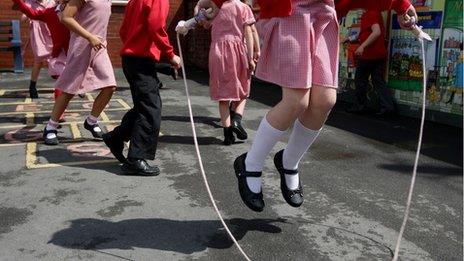Play 'boosts children's development and happiness'
- Published
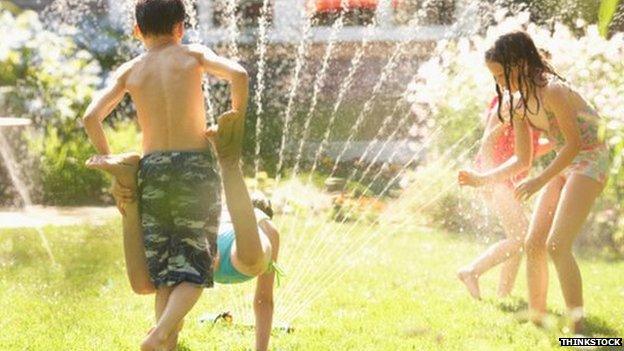
The report says play improves children's happiness and emotional well-being
Play helps boost children's language development, problem solving, risk management and independent learning skills, a study reaffirms.
The report, for the Children's Play Policy Forum, found play improved children's physical and mental health, as well as their emotional well-being.
It also found playtime in the school playground could enhance academic skills and attitudes and behaviour.
Wednesday's report is published to coincide with the UK Playday.
Now in its 27th year, the aim of Playday is to give children, parents and communities an opportunity to highlight the positive impact of play.
Community spirit
The report - the Play Return - reviews a wide range of research into the importance of play in supporting children develop essential skills and knowledge as they grow up.
Parents associated playing in playgrounds with family well-being and those who lived near playgrounds and visited them often reported higher levels of family happiness.
The study also said play and youth facilities in public spaces had led to reductions in levels of anti-social behaviour and vandalism.
The report also found families and communities benefited from play initiatives and wanted action to improve them.
It said play initiatives often generated high levels of volunteering support and a sense of community spirit.
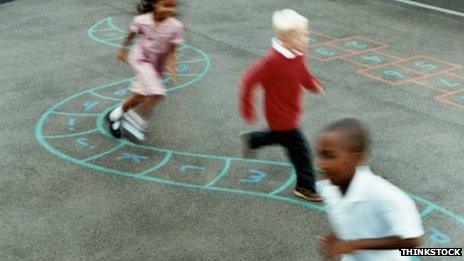
School playgrounds were found to increase physical activity more than PE
The study found school playgrounds were one of the best ways of increasing children's levels of physical activity.
They were also linked to a range of improvements in academic skills, attitudes and behaviour, and to improved social skills, improved social relations between different ethnic groups, and better adjustment to school life.
"There is good evidence that making changes to school playgrounds leads to an increase in children's levels of physical activity," the report said.
"Various forms of intervention have been shown to give this outcome, including changes to marking, the addition of play equipment, making available games equipment (such as balls and bats) and the introduction of loose materials such as scrap and recycled office equipment."
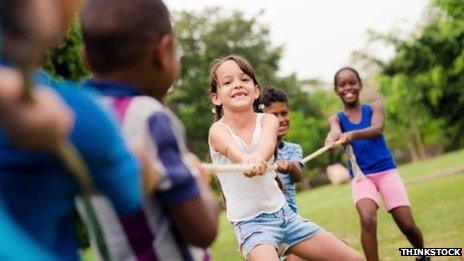
Play was found to improve social skills development
Some studies suggested that children could be more physically active during free play than during sport or PE lessons, the report said.
"Physical activity programmes in schools can have positive influences on cognitive performance, with demonstrable positive results in academic attainment, concentration, memory and classroom behaviour."
Report author Tim Gill said: "At the core of the report is the message that not only does outdoor play impact significantly on the lives of children and young people, it also - in many cases - can provide a basis for the transformation of wider communities.
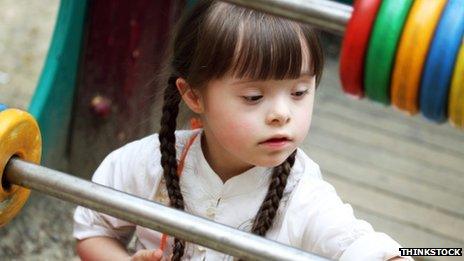
The research finds parents associate playing in playgrounds with family well-being
"From the perspective of politicians and policy makers, the report highlights that investing in play can and does lead to multiple benefits including improved educational attainment, a healthier society and increased levels of tolerance within and between communities."
To mark Playday 2014, thousands of children and young people from England, Scotland, Wales and Northern Ireland will take part in community events all over the UK.
- Published7 August 2013
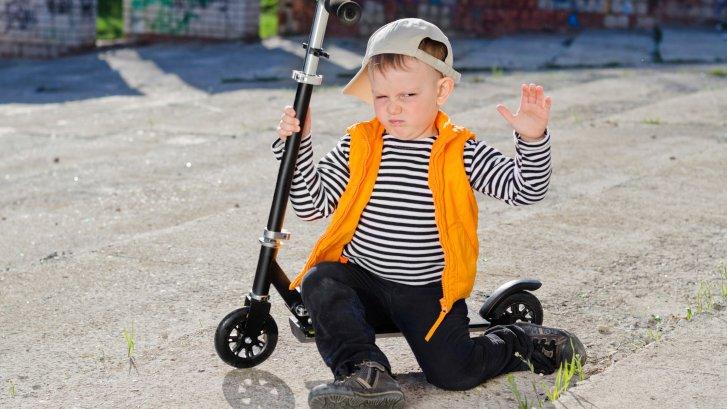
- Published25 July 2014
